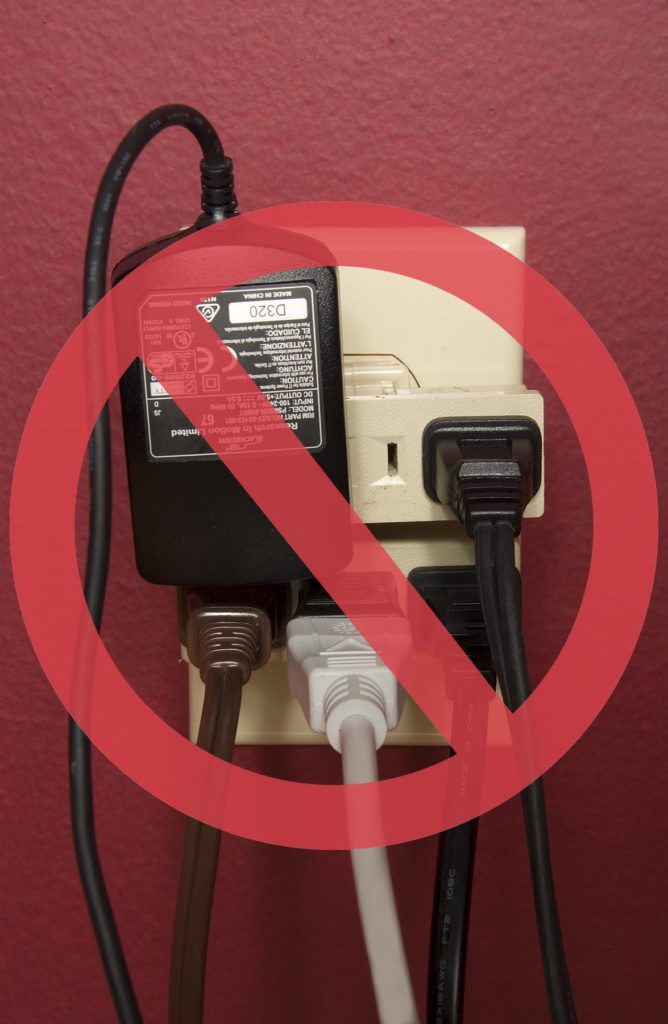
The Seattle Fire Department responded to two home fires this week that involved overloaded power sources and caused significant property damage. Overloaded outlets and the misuse of extension cords are common electrical issues that can cause a home fire.
Extension cords are designed to provide a temporary power source and should be unplugged when not in use. When shopping for an extension device, look for a power strip or surge protector with an internal circuit breaker that will trip the breaker when overloaded.
How to prevent home fires:
- Avoid using extension cords. They are meant for temporary use only. They should not be tacked to walls or run under rugs.
- Never use extension cords with appliances or space heaters. Plug them directly into wall outlets.
- There should only be one surge protector or power strip plugged into a single duplex electrical outlet.
- Power strips vary in their capacity but should only be used for items that require light loads such as computers, printers and clocks, for example. They are not made to handle refrigerators or portable heaters.
- If the extension cord or power strip feels hot to the touch, replace it.
- Do not connect one extension cord or power strip to another. Also known as “daisy chaining.”
- Make sure the power strip has been tested by an independent testing agency such as Underwriters Laboratory (UL) or the Electrical Testing Laboratories (ETL).
Call a qualified electrician or the landlord if you experience any of the following:
- Frequent problems with blowing fuses or tripping circuit breakers
- A tingling feeling when you touch an electrical appliance
- Discolored or warm wall outlets
- A burning or rubbery smell coming from an appliance
- Flickering or dimming lights
- Sparks from an outlet